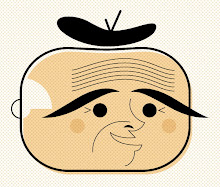A trapeze artist-Un artista del trapecio
A trapeze artist—this art, practiced high in the vaulted domes of the great variety theaters, is admittedly one of the most difficult humanity can achieve—had so arranged his life that, as long as he kept working in the same building, he never came down from his trapeze by night or day, at first only from a desire to perfect his skill, but later because custom was too strong for him. All his needs, very modest needs at that, were supplied by relays of attendants who watched from below and sent up and hauled down again in specially constructed containers whatever he required. This way of living caused no particular inconvenience to the theatrical people, except that, when other turns were on the stage, his being still up aloft, which could not be dissembled, proved somewhat distracting, as also the fact that, although at such times he mostly kept very still, he drew a stray glance here and there from the public. Yet the management overlooked this, because he was an extraordinary and unique artist. And of course they recognized that this mode of life was no mere prank, and that only in this way could he really keep himself in constant practice and his art at the pitch of its perfection.
Un artista del trapecio -como se sabe, este arte que se practica en lo alto de las cúpulas de los grandes circos es uno de los más difíciles entre todos los asequibles al hombre- había organizado su vida de tal manera -primero por afán profesional de perfección, después por costumbre que se había hecho tiránica- que, mientras trabajaba en la misma empresa, permanecía día y noche en el trapecio. Todas sus necesidades -por otra parte muy pequeñas- eran satisfechas por criados que se relevaban a intervalos y vigilaban debajo. Todo lo que arriba se necesitaba lo subían y bajaban en cestillos construidos para el caso.
De esta manera de vivir no se deducían para el trapecista dificultades con el resto del mundo. Sólo resultaba un poco molesto durante los demás números del programa, porque como no se podía ocultar que se había quedado allá arriba, aunque permanecía quieto, siempre alguna mirada del público se desviaba hacia él. Pero los directores se lo perdonaban, porque era un artista extraordinario, insustituible. Además era sabido que no vivía así por capricho y que sólo de aquella manera podía estar siempre entrenado y conservar la extrema perfección de su arte.


































